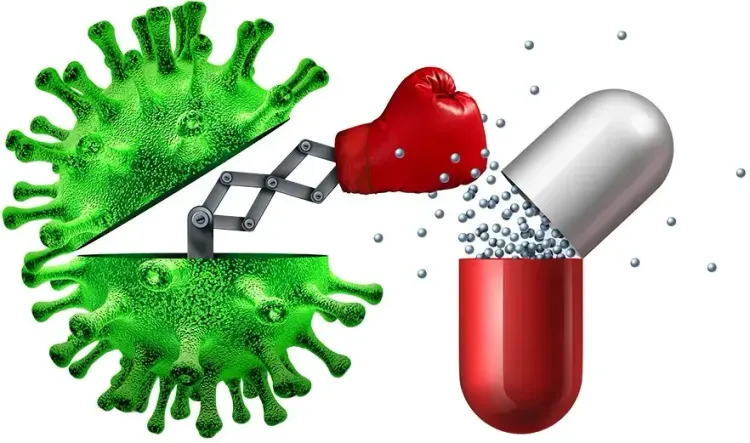Short-Term Use of Antibiotics May Induce Gut Bacteria Resistance

Synopsis
Key Takeaways
- Short-term antibiotic use can cause lasting gut bacteria resistance.
- The study focused on ciprofloxacin and its effects.
- Resistance can persist for over 10 weeks.
- It highlights the role of excessive antibiotic use in AMR.
- Research utilized longitudinal metagenomic analysis.
New Delhi, April 26 (NationPress) With antimicrobial resistance (AMR) emerging as a pressing global health issue, resulting in millions of fatalities annually, a recent investigation has highlighted how even brief antibiotic usage can instigate lasting resistance in gut bacteria.
Researchers at Stanford University in the United States concentrated their research on ciprofloxacin, an antibiotic utilized for treating various bacterial infections throughout the body.
The findings revealed that resistance to ciprofloxacin can arise independently across multiple species and persist for over 10 weeks.
AMR is primarily fueled by excessive and inappropriate antibiotic consumption.
Earlier studies have primarily relied on in vitro tests and animal research to comprehend AMR. However, this groundbreaking study, which was published in the journal Nature, conducted a longitudinal metagenomic analysis to illustrate the evolution of resistance in 60 human subjects.
The researchers administered 500 mg of ciprofloxacin to 60 healthy individuals, instructing them to take it twice daily for a duration of five days.
Utilizing stool samples along with a computational method, the team reconstructed 5,665 genomes representative of commensal bacterial populations, uncovering 2.3 million genetic variants.
Among these variants, 513 populations exhibited genetic alterations or mutations in gyrA—a gene linked to fluoroquinolone resistance. Fluoroquinolones are a class of broad-spectrum antibiotics that disrupt bacterial DNA replication, ultimately leading to bacterial death.
Many mutations tend to arise independently within individuals. Close to 10 percent of initially susceptible bacterial populations developed resistance through these mutations.
The resistance persisted beyond the 10-week mark and was estimated to remain detectable for up to a year.
Interestingly, resistance was more likely to develop in populations that were plentiful prior to treatment, which also underwent substantial declines during exposure.
“These findings demonstrate that brief exposure to ciprofloxacin stimulates the evolution of resistance in gut commensals, with mutations lingering long after treatment,” stated the researchers in their publication.
“This study emphasizes the potential of the human gut to foster resistance evolution and identifies critical genomic and ecological factors that influence bacterial adaptation in vivo (within humans),” they concluded.










